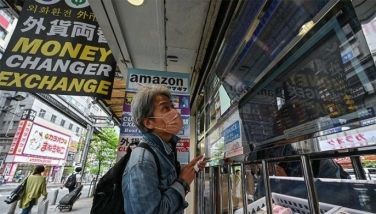Future-proof banking system in the works

MANILA, Philippines — The Bangko Sentral ng Pilipinas (BSP) is committed to pursuing efforts to future-proof the Philippine banking system, recognizing that banks remain at the core of the country’s financial system.
BSP director Maria Cynthia Sison, speaking at the recent annual meeting and conference of the Philippine Economic Society, emphasized that a healthy financial system ensures the fulfillment of the financing requirements of a growing economy.
Sison said a healthy financial system ensures that it has enough resources to pursue innovation and activities that will promote the well-being of present and future generations.
“The BSP will continue to purse prudential reforms and initiatives that foster institutional stability, prudent innovation, and sustainability toward a sound, stable, and sustainable financial system,” she said.
Sison said the regulator has implemented several reforms and initiatives to promote resilience of banks, building on the corporate governance and risk management standards it has put in place over the years.
According to Sison, the central bank has institutionalized programs that strengthen cyber resilience of banks and financial consumers.
She added that the BSP has adopted a risk-based anti-money laundering/counter-terrorism financing/counter-proliferation financing framework.
The Philippines has been retained in the gray list or jurisdictions under increased monitoring of global dirty watchdog Financial Action Task Force (FATF) since June 2021 for failing to address the gaps in its regime to counter money laundering as well as terrorist and proliferation financing.
The Paris-based watchdog has given the Philippines until January next year to address the strategic deficiencies after it failed to meet the deadline last January.
Sison said the BSP also strengthened its credit risk management standards and championed sustainability in the financial system.
Latest data from the BSP showed the assets of Philippine banks grew by 8.7 percent to P24.7 trillion from January to September this year versus last year’s P22.72 trillion.
Last year, the assets of banks operating in the Philippines booked an 11 percent expansion to P23.77 trillion as the country’s economy continues to recover from the impact of the COVID-19 pandemic.
The banking sector is dominated by family-owned conglomerates led by Sy-led BDO Unibank and China Banking Corp., Ayala-led Bank of the Philippine Islands, Ty-led Metropolitan Bank & Trust Co., Yuchengco-owned Rizal Commercial Banking Corp., Lucio Tan’s Philippine National Bank and Aboitiz-led Union Bank of the Philippines.
S&P Global Ratings primary credit analyst Nikita Anand earlier said the return on assets of Philippine banks are likely to peak this year.
“The sector’s return on average assets could normalize to long-term average of 1.2 to 1.4 percent over the next two years after peaking at about 1.5 percent in 2023. This is because net interest margins will decline in line with policy rate normalization,” Anand said.
She pointed out that a moderating cost-to-income ratio and increasing share of retail loans could provide an upside to profitability over the next three years.
From January to September this year, the earnings of Philippine banks went up by 10.4 percent to P270.35 billion on the back of strong interest earnings and lower provision for potential loan losses.
- Latest
- Trending




























